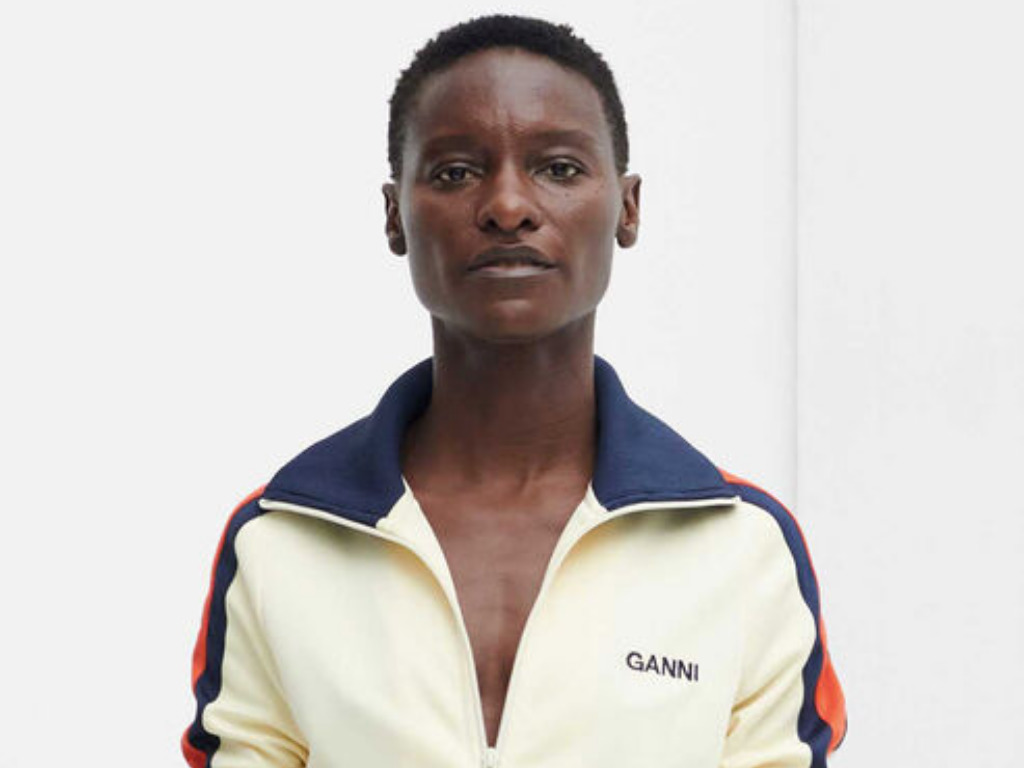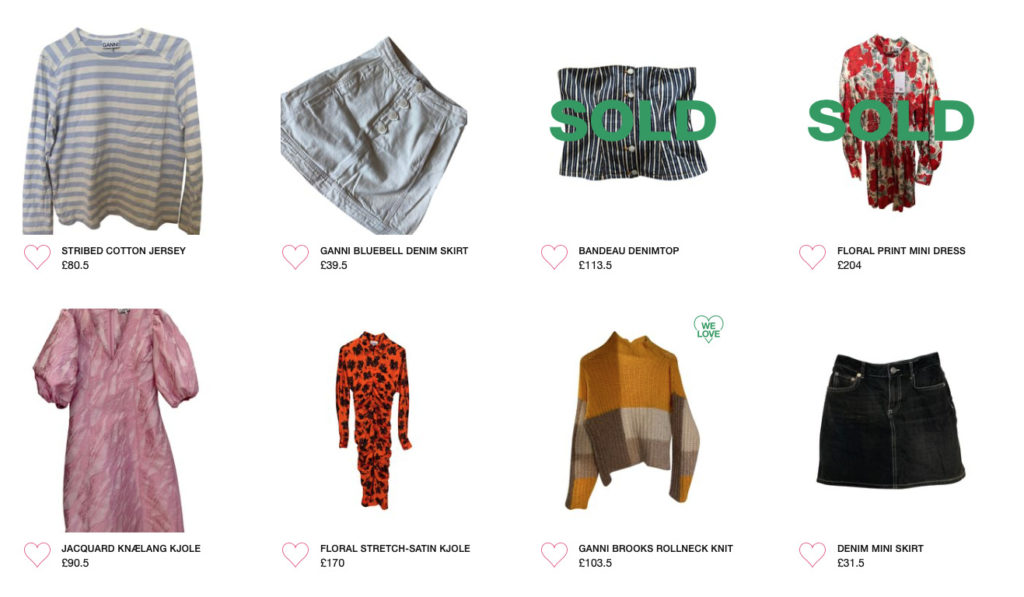4 Mins Read
Scandinavian brand Ganni is proving that the circular fashion economy never goes out of style. Having already launched its Ganni Repeat initiative, it has now integrated a peer-to-peer resale platform designed to make secondhand shopping a seamless experience.
Ganni Repeat includes a partnership with repair service Sojo in the U.K. and a rental platform that launched in 2019. The new addition of facilitated resale represents another feather in Ganni’s sustainability cap.

Fashion resale is becoming an environmentally-motivated trend
Forget tens of thousands of new drops a month a la Shein; the real trend in fashion right now is resale. Popularity of sites such as Depop, Vestiaire Collective, Vinted and The RealReal has propelled the practice of wearing, selling and buying preloved into the forefront of popular culture. As activists such as Fashion Revolution and Changing Markets Foundation rejoice that old is becoming the new ‘new’, brands are faced with a conundrum: get on board, as Ganni has, or lose customers and face.
Globally, in the region of 56 million tonnes of clothing is bought every year. This is predicted to reach 93 million by 2030 and 160 million by 2050. As it stands, just 12 percent of material used to manufacture clothing gets recycled. The fashion industry is responsible for at least 10 percent of all greenhouse gas emissions. Consumer knowledge gaps are closing, thanks to prolific campaigning against fast fashion, resulting in more looking to buy preloved for cost and environmental savings.
The potential for cannibalistic sales is a risk of resale. Alongside, authority can be lost via third-party apps and sites, as low-quality merchandise is sold on, cheapening formerly high-end brands. To get ahead of these issues, fashion names are seeking to take control of their own resale platforms, as Ganni is. Gucci, Valentino and Jean Paul Gaultier have all taken similar steps. Prada has spoken of its interest in resale but made no firm commitments as yet.

Ganni’s new resale platform for U.K. and Scandinavian consumers
“[During] the last 10 years, it has always been about newness, newness, newness,” Ditte Reffstrup, Ganni’s creative director, told Vogue. “But I can see a change – it’s becoming cool and trendy to wear the old stuff.”
Ganni has integrated a resale platform into its website, where brand fans can sell on previous purchases. The idea, the brand says, is to make it almost impossible to distinguish between buying now or preloved.
“The whole point is that we want to make anything that pertains to the afterlife of our product so seamless and fluid that the consumer won’t necessarily notice if he or she is buying a new product, [a second-hand product] or renting a product,” Nicolaj Reffstrup, Ganni’s founder, said to Vogue.
The resale application will be developed to include notification alerts. Customers will be informed that there is a demand for something they have previously bought from Ganni. When the piece no longer works in their wardrobe, they can upload it to the resale platform and be assured that other consumers are looking for it.
Ganni acknowledges that the resale model poses a risk in terms of encouraging shoppers to clear their old pieces out to buy new. However, the brand is optimistic that consumptions styles are changing as a whole, thanks to sustainability awareness. To continue doing its bit, Ganni does not flood the market with hundreds of new pieces every season. Instead, it chooses to release fewer collections of higher quality, that will last longer. It frequently employs deadstock materials in its pieces as well.

The fight to stop clothing languishing in landfill
Consumers are being told that they need to buy 75 percent fewer new clothing pieces to create a sustainable wardrobe. Brands that don’t want to manage their own resale capacity are looking to partnerships that will manage the process for them.
Ebay recently announced its Imperfects marketplace. Part of the wider Ebay platform, it allows brands to send items that didn’t meet quality control standards to processing centres, ahead of sale at lower-than-retail prices. Buyers can find bargains, including designer handbags with light scratches or trainers that have been used as display items, while brands can recoup production costs and not participate in clothing destruction. The latter made Burberry unpopular when it was revealed it burned $35 million of unsold products in 2017, to prevent them from being stolen or sold cheaply.
All photos by Ganni.





